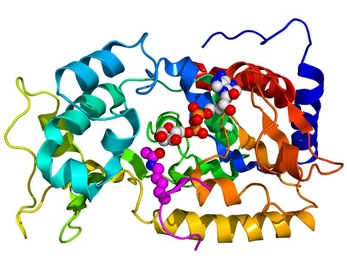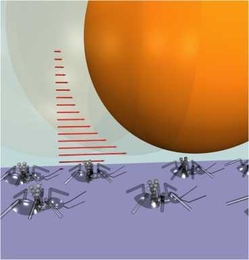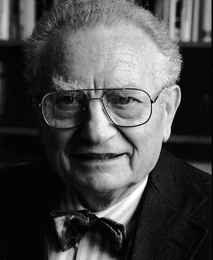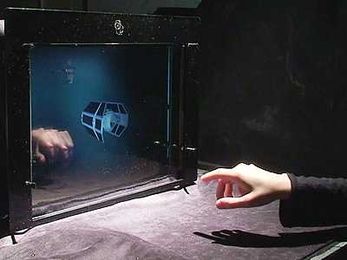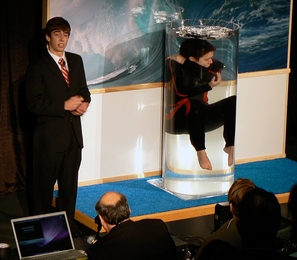Search Stories
President Hockfield meets key MIT Portugal stakeholders during three-day visit to Lisbon
Receives first-of-its-kind honorary doctorate from leading Portuguese universities
New evidence links sirtuins and life extension
Study from Leonard Guarente shows how sirtuins act in the brain during calorie restriction to potentially lengthen lifespan.
‘Micro-ants’: Tiny conveyor belts for the 21st century
A new method of moving tiny particles using magnetic polymer beads and magnetic fields could find uses in microchips and in medicine
Former MIT President Howard W. Johnson dies at age 87
A ‘loyal friend’ to the Institute, he also chaired the MIT Corporation and guided the school through a turbulent era.
Their infinite wisdom
An MIT historian of science uncovers the saga of the Russian scholars whose mysticism helped them redefine the concept of infinity
Nobel-winning economist Paul A. Samuelson dies at age 94
In a career that spanned seven decades, he transformed his field, influenced millions of students and turned MIT into an economics powerhouse
Computing with a wave of the hand
A new Media Lab system turns LCD displays into giant cameras that provide gestural control of objects on-screen. And that’s just for starters.
A social network that ballooned
An MIT team’s savvy use of social media to locate weather balloons as part of a $40,000 DARPA contest may shed light on how to mobilize resources during emergencies.
The 'sci' behind the 'fi'
A public television program explores the ways real science is starting to catch up with the futuristic visions in Star Trek.
Reporter’s Notebook: Jules Verne, desperado?
MIT historian of science Rosalind Williams on the overlooked legacy of Jules Verne, anti-globalization visionary
MIT goes to Copenhagen
Delegation of MIT professors, students and alumni attend historic global warming conference to present research and report on event
Reporter’s Notebook: Emergency measures
For drowning surfers, fallen bicyclists and injured mountaineers, students in MIT’s 2.009 class devise products that could save lives.
How to encourage big ideas
A new study suggests certain types of funding — which provide more freedom and focus less on near-term results — lead to more innovative and influential research.

